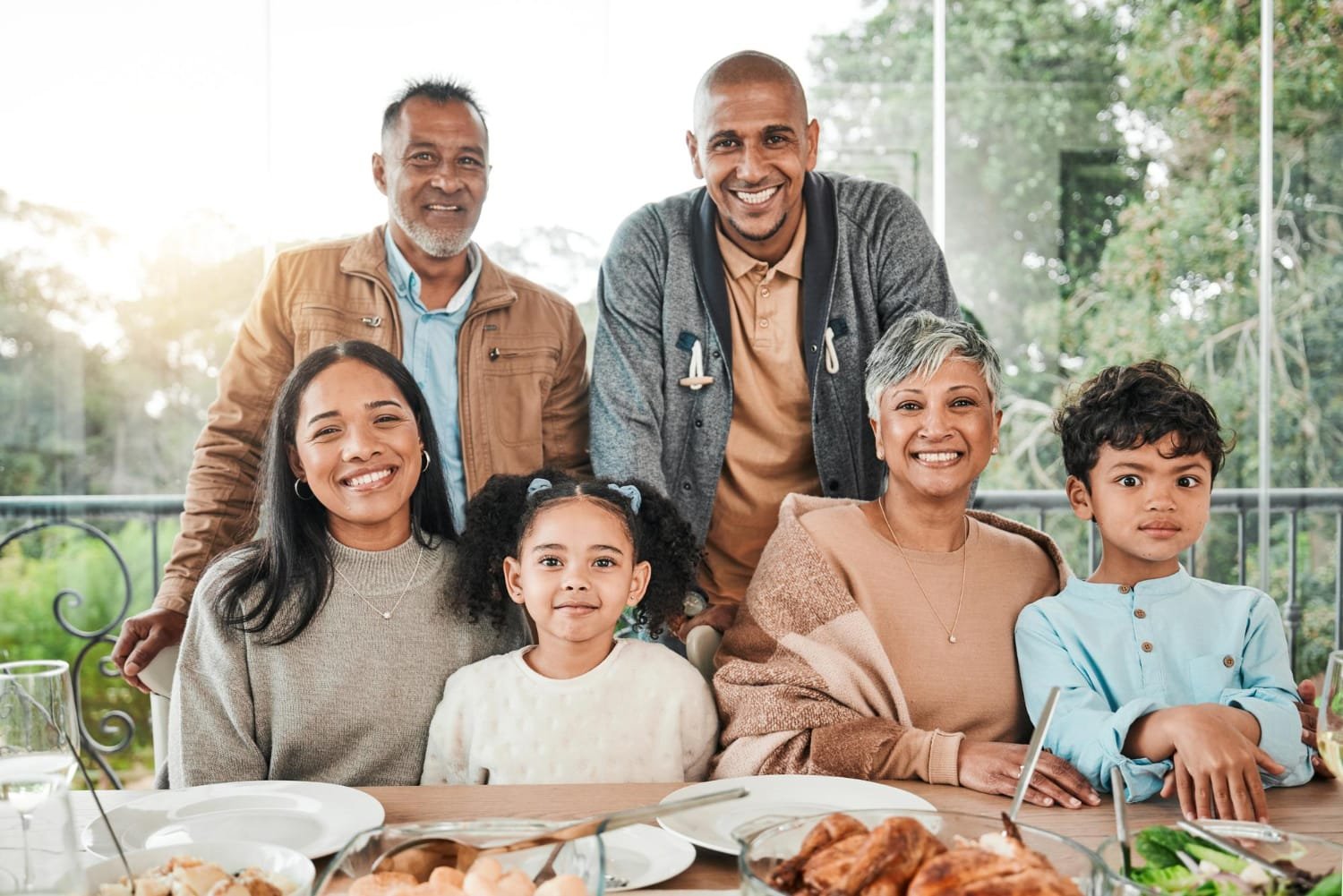Feeling Disconnected? Why You Crave Time with Friends and Family (And How to Get It!)
Ever feel like juggling chainsaws while riding a unicycle? That’s modern life for you! But amidst the chaos, we all crave genuine connection. It’s that warm fuzzy feeling when you laugh with your best friend or share a quiet moment with your sibling. It’s the feeling of belonging and knowing you’re loved for who you are. And guess what? It’s not only about enjoying oneself. Companionship and friendship with family and friends are necessary for our health. In the digital world, where isolation is becoming commonplace, personal encounters must be stressed even more. Let’s explore the significance of these connections and how to encourage them in our wild and mixed-up world.
The Essence of Human Connection: Why We Need Our Tribe
Humans are social creatures. It’s wired into our DNA! Think about it: Solitary confinement is considered one of the harshest punishments. Why? Because we’re programmed for connection. From birth, we yearn for it. Reflect on infants; they depend on touch, gaze, and gentle contact. And it’s no surprise that these inseparable attachments forged during infancy form essential prerequisites for adequate social and emotional development; as John Bowlby, a prominent psychologist and one of the founders of attachment theory, put it, “The propensity to make strong emotional bonds to particular individuals is a basic component of human nature.”
As we grow, our need for connection evolves. We form friendships, explore romantic relationships, and build our own families. But the core desire remains the same: to belong, love, and be loved. This isn’t just touchy-feely stuff; there’s hard science behind it. Neuroscientists have found that social connection triggers the release of oxytocin, the “love hormone,” which reduces stress and promotes well-being.
- Belonging: We all want to feel part of something bigger than ourselves. Our friends and family give us identity and purpose. They are our tribe, our support system, our haven. Research by Roy Baumeister, a social psychologist, demonstrates that our need to belong is a fundamental human motivation, as essential to our well-being as food and shelter.
- Love: Love is a basic human need, like food and water. It nourishes our souls and helps us thrive. Our closest relationships provide unconditional love and acceptance. In her book Daring Greatly, Brené Brown, a research professor who studies courage, vulnerability, shame, and empathy, writes, “Connection is why we’re here; it gives purpose and meaning to our lives.”
- Security: Knowing people care about us gives us security and stability. This is especially critical during times of stress or change. A study published in Psychological Science found that people with strong social support networks can better cope with stressful life events.

Family Time’s Profound Impact
Family—a real brain teaser. But it’s also probably the most meaningful thing ever. Families influence people regardless of the side of influence. Family time is critical and creates unforgettable moments. Imagine it another way—every family has a story, and every family member has their role. Each experience, word, joy, or consolation is a small detail in the big picture. Do you recall memories of family trips, holiday meals, or just joy from being with your relatives? These are the things that bond us. To maintain these bonds, consider regular family meetings, shared activities, and open communication that makes everyone feel understood and valued.
Building a Strong Foundation: Early Childhood Development
Those early years are critical. The first three years of a child’s life are full of brain development, with neural connections forming very quickly. Studies show that children who spend quality time with their families have better social skills, self-esteem, and academic performance. Why? Because family provides a safe and nurturing environment for children to explore the world, learn, and grow.
- Language Development: Talking, singing, and reading to young children boosts their language skills. Research by Betty Hart and Todd Risley revealed a staggering 30-million-word gap in language exposure for children from different socioeconomic backgrounds by three. The more words children hear, the stronger their language skills become.
- Emotional Intelligence: Family interactions teach children to identify and manage emotions. Dr. Daniel Goleman, author of Emotional Intelligence, emphasizes the importance of early childhood experiences in shaping emotional intelligence. He states, “Family life is our first school for emotional learning.”
- Social Skills: The importance of children’s play with siblings and contact with extended families cannot be undermined. It helps kids learn vital social skills such as taking turns, helping those in need, and showing care. One study published in the Child Development Journal revealed that children who played pretend with their siblings displayed higher levels of empathy and pro-social behavior. Extended family members also play a crucial role in a child’s development, providing additional support and guidance.
Navigating Adolescence: Support and Guidance
Teenage years—need I say more? Adolescence is a time of significant turbulence and storm; identity is a hot topic, and a place to belong is desperately sought after. The best way to deal with chaos is to stay close to the family, the shelter from all adolescence’s rough seas and winds. Comfort, wisdom, and assurance of acceptance are present to the adolescents in all the confusion life imposes at this age, making them feel secure and protected.
- Support System: Teens must know they have a safe space to express themselves without judgment. The American Academy of Pediatrics states, “Family support is one of the most significant protective factors for adolescents.”
- Guidance: Parents and family members can offer advice and support as teens navigate adolescent challenges. Research shows teens who feel connected to their families are less likely to engage in risky behaviors.
- Role Models: Positive family relationships give teens healthy role models for their future relationships. A study published in the Journal of Marriage and Family found that adolescents who witnessed positive marital interactions in their families were likely to have successful romantic relationships in adulthood.
The Ties that Bind: Adult Relationships with Family
With age, even primary relationships change as one grows up. Moving away from them, establishing close family relationships, and encountering various life situations are typical for grown-ups but not the earliest bonds. As such, it is advised to try to arrange family get-togethers on a regular schedule, if need be, talk over the phone, and make visits to learn about each other’s progress. These measures strengthen one’s connection with one’s origin and parents. The dots and lines help bring the past into the present. A strong analogy exists for such relationships with planting and caring for a tree as it grows.
- Shared History: Our families carry our history with us. They know where we came from and who we are at our core. This shared history provides a sense of continuity and belonging essential to our well-being.
- Unconditional Love: Our families will always be there for us, no matter what. This unconditional love is a powerful source of strength and support. Research by communication scholar Dr. Kory Floyd shows that expressing and receiving affection within families strengthens bonds and promotes happiness.
- Legacy: Spending time with family helps us pass down traditions, values, and memories to the next generation. This intergenerational connection creates continuity and purpose.
The Golden Years: Cherishing Moments with Aging Relatives
With the passing of time, parents and grandparents also become physically weak, requiring more time with them. They possess so many memories and stories to tell. These occasions are special and short-lived. Consider them very special and precious treasures – friendly conversations and recollections all make beautiful memories to be treasured.
- Respect and Appreciation: Spending time with elderly relatives shows them we value their presence. A study published in The Gerontologist found that social engagement in later life is associated with better cognitive function and a reduced risk of dementia.
- Connection to the Past: They link to our family history and heritage. Their stories connect us to our ancestors and give us a sense of our origins.
- Emotional Support: They can comfort elders. Research has proven that older people with social support feel less lonely and socially isolated. This can significantly affect their health and well-being.

The Unique Value of Friendship: Beyond the Family Tree
Friends are the family we aspire to be. They enrich our lives in many ways, as we can share more than one type of true love with another person besides those we are related to. Love comes from friendship; well-being is essential for health and makes one feel like one will always have a place, a reason, and the strength to push through all difficulties.
The Chosen Family: Finding Your Tribe
The friends we choose are our family. Despite our oddities and well-being, they understand us and love us. They cheer on our victories and comfort us in our defeats. This feeling of acceptance is crucial for our mental health.
- Shared Interests: Friends are usually related to people with similar interests and zeal. This could be an interest in climbing hills, a favorite music group, or a passion for social justice. These interests help find common bonds and allow people to do things together.
- Mutual Support: Friends offer a listening ear, a shoulder to cry on, and a helping hand when we need it most. They celebrate our successes and offer encouragement during challenges. Research has shown that having a solid social support network can buffer stress effects and improve our ability to cope with adversity.
- Fun and Laughter: Friends bring joy and laughter into our lives. They make us feel positive about ourselves and help us see the lighter side of life. Laughter is the best medicine, releasing endorphins with mood-boosting and pain-reducing effects.
Expanding Horizons: Diverse Perspectives and Experiences
Our friends come from all walks of life. They expose us to various ideas, perspectives, and experiences, enriching our understanding of the world and ourselves.
- Personal Growth: Friends challenge us to think differently and grow as individuals. They offer different perspectives, introduce us to new ideas, and encourage us to step outside our comfort zones. This can lead to personal growth and self-discovery.
- Cultural Awareness: Friends from different backgrounds can broaden our world understanding. They can introduce us to new cultures, customs, and ways of thinking, fostering empathy and tolerance.
- Discovering Opportunities: Friends can open doors to new opportunities and experiences. They can introduce us to interesting people, connect us with potential employers, or inspire us to pursue different interests.
Weathering Life’s Storms: Support Systems and Resilience
Life throws curveballs—it’s inevitable. But having a solid network of friends can help us weather those storms. They keep us grounded during turbulent times.
- Emotional Support: Friends offer a listening ear and a shoulder to cry on during tough times. They provide a safe space to express our emotions without fear of judgment. Research has shown that emotional support from friends can reduce depression and anxiety symptoms.
- Practical Help: Friends can provide practical help when we need it, like childcare, errands, or a place to stay. This tangible support can be invaluable during times of crisis or transition.
- Resilience: Studies show that people with strong social support networks are more resilient to adversity. They can better bounce back from setbacks, cope with stress, and maintain a positive outlook.
Practical Strategies for Connection: Making Time for What Matters
Finding time for friends and family can be challenging in our busy lives. But it’s crucial to make it a priority. Think of it as investing in your emotional bank account – the more you deposit, the richer your life will be. Here are some practical strategies.
Prioritizing Relationships in a Busy World
It’s easy to get caught up in the daily grind. But we must intentionally make time for the people who matter most. It’s about making conscious choices and setting boundaries.
- Schedule It In: Like work meetings and appointments, make time for friends and family. Please put it on your calendar and treat it as a non-negotiable commitment. This might mean blocking off a specific evening each week for a family dinner or scheduling a monthly coffee date with a friend.
- Limit Distractions: When spending time with loved ones, put away your phone and be present. Could you give them your undivided attention? Resist the urge to check emails or scroll through social media. Indeed, be present at the moment.
- Say No to Overcommitting: It’s okay to say no to things that don’t align with your priorities. Protect your time for the people and activities that matter most. Learn to prioritize and delegate. It’s okay to ask for help.
Creating Meaningful Experiences: Sharing Activities and Traditions
Shared experiences strengthen bonds and create lasting memories. They are the threads that weave our relationships.
- Family Traditions: Establish family traditions, like weekly game nights, annual vacations, or holiday celebrations. These rituals create a sense of belonging and connection. They provide continuity and stability, especially during times of change or stress.
- Shared Activities: Engage in activities you enjoy together, like hiking, cooking, playing games, or attending events. These shared experiences create opportunities for laughter, conversation, and bonding.
- Acts of Service: Show your love and appreciation through acts of service, like helping with chores, running errands, or offering support during difficult times. These acts of kindness demonstrate your care and commitment.
The Power of Presence: Active Listening and Engagement
Taking time to be present is a gift. It’s about more than physical presence. It’s about actively listening, engaging in conversation, and showing genuine interest in the other person. It’s about making them feel seen and heard.
- Active Listening: Pay attention to what the other person says verbally and nonverbally. Ask clarifying questions and reflect on what you’ve heard. Make eye contact, nod your head, and use verbal cues to show your engagement.
- Empathy: Try to see things from the other person’s perspective and understand their feelings. Put yourself in their shoes. Show compassion and understanding.
- Uninterrupted Time: Create dedicated conversation time without distractions. Turn off the TV, put away your phone, and focus on the other person.
Bridging the Distance: Maintaining Long-Distance Relationships
Many of us have friends and family far away in today’s interconnected world. But we can still stay connected. Technology has made it easier than ever to maintain those bonds across the miles.
- Regular Communication: Try to stay in touch through phone calls, video chats, emails, and social media. Set aside specific times to connect, even just for a quick chat.
- Planned Visits: Schedule regular visits, even if just for a weekend. Make the most of your time together by planning activities and creating shared experiences.
- Shared Experiences: Find ways to share experiences even when you’re apart, like watching a movie together online, playing online games, or reading the same book and discussing it.

Addressing Obstacles and Challenges: Navigating the Thorny Path of Relationships
We can openly admit it—relationships are necessary but not always pleasant. Witnessing family feuds as if they were lifted from a soap opera, navigating fights with friends like a landmine explosion, or grieving the loss of a loved one, which turns the heart inside out—these are some of the most challenging experiences in the world. And yet, during these times when the waters are turbulent, our connections are tested, and we may become more muscular.
Navigating Family Conflicts and Difficult Dynamics
Family. It is a word that sometimes brings affection and anger. These two feelings may exist in any family. Arguments, conflicts of views and principles, and past wounds that will never mend are times when families experience struggles. However, these issues do not have to define our relationship. Instead, they are avenues through which life can challenge, comprehend, and strengthen those relationships.
- Communication is Key: Imagine yourself in a maze blindfolded. That is how it alleviates a conflict without openly and verbally discussing it. The very feelings that need to be expressed for them to be listened to must be put forward in “I” phrases to avoid placing blame, and one must also strive to hear others’ voices. In some situations, accepting another person’s feelings settles the participant’s anger.
- Boundaries: Think of boundaries as emotional fences. Setting healthy boundaries can protect our emotional well-being and prevent resentment from taking root. It’s okay to say “no” to things that drain us or cross our borders. It’s about respecting your own needs and limits while respecting others.
- Forgiveness: Holding onto grudges is like carrying a heavy backpack full of rocks. It weighs you down and prevents you from moving forward. Forgiveness, both of us and others is essential for healing and moving forward. It doesn’t mean condoning hurtful behavior but releasing anger and resentment to create space for healing and reconciliation.
Loss and Grief Impact Relationships
Death of a loved one or spouse is a loss that everyone has suffered one way or another. It is a pain that most people want to forget. This could be in the form of the death of a parent, a close friend, or a partner. It could also be the termination of a close bond, the disintegration of a family, etc. At any given point, grief will drown most individuals, leaving them feeling lonely and lost in a sea of grief. They wish their heart’s sorrow would ease and they could return to how everything once was.
- Allowing for grief: Grief is an ongoing process rather than a solution. We must give each other the time and space to mourn and feel our feelings without censoring ourselves. Grieving can be done differently. While some want to share their loss with others, others prefer to be left alone. In some cases, the experience is anger and passion in strong tides; in others, it is apathy and a practical, almost robotic approach. Embrace your grieving style.
- Seeking Support: When you’re feeling lost in grief fog, it’s essential to lean on your support network. Talk to friends, family members, or a therapist about your feelings. Sharing your grief can help you process your emotions and feel less alone. Support groups can also provide a safe space to connect with others who understand what you’re facing.
- Honoring Memories: Dealing with an individual’s death or the end of a relationship might be painful; however, remembering and erecting a monument to that individual could be enriching and healing. This might include sharing stories, designing a memorial, or replicating customs. If you remember and miss them, it may be helpful to feel connected to them even in their physical absence.
Balancing Friendships, Family, and Personal Time
Are friends, family, and oneself equal? That is the case, but achieving it feels like navigating a ship through a hurricane. Time is the most significant factor, and more often than not, it needs to be spent developing and cultivating that culture. Over the years, especially during the pandemic, each of us had our own experiences and memories we, as a collective, wish to protect. As a tripod, stability will never be the outcome if one of the legs is inappropriately engineered or if one leg is less cared for than the others.
- Self-care: Maintaining our physical and emotional well-being is essential for healthy relationships. It’s like putting on your oxygen mask first to ensure you can care for others on an airplane. Ensure you get enough sleep, eat well, and engage in activities that bring you joy and rejuvenation. When prioritizing our well-being, we have more to give to our relationships.
- Quality over Quantity: It’s not about how much time we spend with loved ones but the quality. Make sure the time you spend together is meaningful and fulfilling. Put away your phone, truly listen, and engage in activities you all enjoy. Even small moments of connection can have a significant impact.
- Flexibility: Life is constantly changing, and our relationships will evolve. Be flexible and adapt to the changing needs of your loved ones and yourself. Recognize that there will be seasons where you have more or less time for specific relationships. Communicate openly and honestly about your needs and limitations.
Recommend Books
- Daring Greatly by Brené Brown: This book explores the power of vulnerability and connection in building solid relationships.
- Emotional Intelligence by Daniel Goleman: This book delves into the importance of emotional intelligence in navigating relationships and building strong connections.
- Hold Me Tight by Sue Johnson: This book offers practical guidance on strengthening adult relationships and fostering secure attachment.
- The 7 Habits of Highly Effective Families by Stephen R. Covey: This book provides a framework for building strong and healthy family relationships based on principles of effectiveness.
- The Power of Moments by Chip Heath and Dan Heath: This book explores how to create meaningful moments and experiences that strengthen relationships and build deeper connections.
Conclusion: Reaping the Rewards of Connection – A Life Well Lived
They say family and friends are significant parts of one’s life, which can be compared with stock bonds; the more you invest, the more you benefit. This is true since stocks pay out dividends. These relationships invite fun into our lives, cheer us up when we are down, and create a priceless bond. The threads make up the beautiful curtain of a well-spent life.
So there you have it! A deep dive into the importance of spending time with friends and family. It is enriched with research findings, statistics, and expert insights to bolster its credibility and authority. It’s a topic close to my heart, and I hope this article resonates with you well. Prioritize those precious connections amidst life’s hustle and bustle. They are the true treasures of life, the foundation of our happiness and well-being.
FAQs
Nowadays, most people face work-related demands, social obligations, and countless distractions. Because of these demands, people tend to ignore relationships with friends or family members, which are crucial for their well-being and life satisfaction. It is necessary to balance work time with the time allocated to family. This is to establish emotional bonds with people and improve life satisfaction.
It is worthwhile to be purposeful and set limits. Schedule appointments with family or friends as one would schedule anything else that is important. Block out this time on your calendar and respect it as if it were a fixed appointment. Even small amounts of time can make a significant difference—a quick coffee date, a phone call, or a shared meal.
Let your imagination shine! Develop traditions like family game nights or family vacations in the same season every year. Join in on family activities, such as mountain hiking, cooking original recipes, or attending events of interest. Help those in your family with their chores and encourage them when they are in challenging situations. The most critical thing is to be focused and active.
Technology has made it easy to stay in touch with people across nations. Set regular phone or video call appointments. Please plan to meet in person wherever feasible, even for a weekend. Seek ways to share experiences, such as watching the same film online or reading the same book.
Nothing runs smoothly, though, and relationships make it even harder. It is better to explain everything in detail. When making emotional statements, mention the other person. Be careful not to push yourself too far and hurt yourself. Most significantly, forgiving others is vital to all healing processes and progress.

















































































